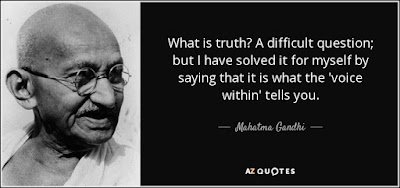Moral theology is often separate from science but ignoring science in this modern age would leave it looking reactionary and irrelevant. In light of some more recent understanding from the world of science, I set out some questions that I feel should be incorporated into moral theology not as a challenge but to complete it.
I have always believed that while religion & philosophy and science do not necessarily conflict, neither is superior to the other. If anything they feed off each other, with the language & conclusions of religion & philosophy being updated to incorporate science to remain relevant and science owing its body of science ethics to religion & philosophy. It is not the intention of this article to be an article on ensoulment or to challenge existing theology or even to be part of that war between religion and science but I have always wondered how the great philosophical and theological works of the past would have been written in the light of the latest scientific understanding.
Thomas Aquinas wrote his Summa Theologica in a time when science and philosophy were unified subjects in a way it is not today. It was written in a scientifically-rational manner but based on the scientific understanding in his days. Would it have been written differently in the light of scientific knowledge of today, other than the obvious ones of language and style? More specifically, would his replies in Part 1 Question 118 Article 2 be expressed differently to address and incorporate the lessons of cellular science, evolution and other life sciences?
I would not deign to challenge Aquinas but here are some insights that I would ask Aquinas, wherever he is now, whether the following questions would require his Summa to be revised or at least reworded to better enlighten us? The questions are largely to do with the mechanics of the metaphysical, an approach which Aquinas seems to have addressed constantly in his great work.
What have souls?
 |
Do souls need a minimum threshold to exist, and if so, what is the threshold based on - cellular/electrical/chemical activity, level of consciousness? Effectively, what is the basis of the soul, where does it resides? Does it reside in the whole of the cell or in only part of the cell, say, the nucleus? Or is it not limited to the physical location of the cell as it is metaphysical in nature, meaning that it could co-locate with other souls within the same physical space?
What has spirits?
In Western philosophy, souls and spirits differ in that only humans have spirits, otherwise known as the human or intellect souls.
 Modern scientific research challenges the notion that some traits are exclusively human. Great apes can use language, including abstract terms - communicating in American Sign Language - with one primatologist with two deaf parents who met Koko, the first ape who signed, reflecting that she has just spoken to another species in her mother tongue. Tool-making is widespread in many species, some of these are carefully planned and kept for future use, indicating planing and intention. Abstract thinking, including artistic expressions in works of art (ok, not to the level of the Old Masters but sufficient to display that the 'artist' was trying to express something), creating new words, etc. have been observed and documented in non-human animals. Now, I am looking at rigorous research which excluded as much anthropomorphism assumptions as possible from these seemingly human traits so actions undertaken due to instincts required by their genes are excluded as far as is known.
Modern scientific research challenges the notion that some traits are exclusively human. Great apes can use language, including abstract terms - communicating in American Sign Language - with one primatologist with two deaf parents who met Koko, the first ape who signed, reflecting that she has just spoken to another species in her mother tongue. Tool-making is widespread in many species, some of these are carefully planned and kept for future use, indicating planing and intention. Abstract thinking, including artistic expressions in works of art (ok, not to the level of the Old Masters but sufficient to display that the 'artist' was trying to express something), creating new words, etc. have been observed and documented in non-human animals. Now, I am looking at rigorous research which excluded as much anthropomorphism assumptions as possible from these seemingly human traits so actions undertaken due to instincts required by their genes are excluded as far as is known.
Are animal souls and human spirits binary (ie., either or choices) classifications? Or is it a spectrum, with possibility that an animal/individual be at an intermediate stage with part animal souls and part human spirit, or a full animal soul with a bit of human spirit overlaid on it, growing with its increasing humanness? We know that we share 98.8% of our DNA with chimpanzees and bonobos. Is the amount of DNA similarity to human DNA the defining criteria for whether an individual has a human spirit (or the proportion of human spirit if non-binary)?
One primatologist noted that a chimpanzee can attain intelligence of a human six-year-old. Today we know that chimpanzees brain structure and hence our mental abilities, differ to the point that the age at which abilities of human babies surpassing that of chimpanzee babies differ with the task involved, and in some tasks human brains will never exceed chimpanzees. But let's just take age six for this inquiry: if we take a six-year old child to Sunday school, shouldn't we do the same for chimpanzees of equivalent intelligence? Fundamentally, would a non-human animal qualify for salvation if it could demonstrate a certain level of abstract thinking for certain virtues on which salvation is based - those common virtues of different religions on which mainstream religionists agree enable adherents of other religions to attain heaven. (I concede that the scientific conclusions in this inquiry does not lend itself to a single age human-chimpanzee intelligence comparison, but whichever the age, there are many similar questions arising, just with different references)
From the classical classification of souls held, it is obvious there pre-humans would once have animal souls. At which point in human evolution did pre-humans acquire a human spirit? Was it that the animal spirit reduced in succeeding generations to be gradually replaced by human souls? If alternatively, the classification was binary, wouldn't that mean that one generation had a wholly animal spirit and their offspring would have a wholly human spirit.
We know today that early humans interbred with Neanderthals and DNA of humans of non-African origins have 1-4% Neanderthal DNA. Did Neanderthals have animal souls? Let's assume they did for the purpose of this inquiry (if they had human spirits, then we just go back to a pair of pre-human species which interbred but with one having animal spirit and the other having human souls). Does that mean that that particular breeding Neanderthal individual had a wholly human soul because of their capacity to produce human soul offspring? And would the other Neanderthals that did not have the same capacity had animal spirits, meaning that some individuals in the species had human souls and some had animal spirits? Or did that individual had a part human soul of sufficient threshold to begat a human soul offspring, raising the question as to what that threshold was?
Effectively, there is a broader question that about whether only humans qualify for heavenly salvation, however we define humanness (DNA content, traits, etc) and once we we have that capacity, we never lose that capacity (with the proviso of whether we actually enter heaven or not dependent on one's own actual life actions). Much like teams in the recently proposed European Super League, never being relegated.
Multi-level souls?
If single cells have animal/vegetation souls, what then about multi-cellular organisms like humans? Are there two levels of souls - one at the cellular level and one at the organism level? If there are, what is the relationship between the two, and do the after-life also exists for the subsidiary soul? If so, does the after-life of one affect the other?If single cells have souls but cells within an organism do not, do the latter acquire souls when they separate from the organism - fell off, removed, etc? Or they never have souls no matter how long they survive?
Since individual cells could survive the death of the organism, for a certain length of time anyway, do each soul at both levels commence its post-death transition at different times?
Fetus-in-situ
 Fetus-in-situ have always intrigued me. Basically, these are fraternal twins in the womb, one of which did not develop as a fully viable baby. The non-viable twin often dies and would normally be reabsorbed back into the mother's body. In rare cases (about 2 in a million live births) however it is not reabsorbed and the surviving twin grows to envelop it, resulting in the regular stories of patients having a tumour removed, which distressingly turned out to be a sibling. The non-viable twin may end up dead and is removed as a calcified mass like bone or it was still alive and was removed as a mass of cells like a cyst or tumour, often with recognisable organs & limbs.
Fetus-in-situ have always intrigued me. Basically, these are fraternal twins in the womb, one of which did not develop as a fully viable baby. The non-viable twin often dies and would normally be reabsorbed back into the mother's body. In rare cases (about 2 in a million live births) however it is not reabsorbed and the surviving twin grows to envelop it, resulting in the regular stories of patients having a tumour removed, which distressingly turned out to be a sibling. The non-viable twin may end up dead and is removed as a calcified mass like bone or it was still alive and was removed as a mass of cells like a cyst or tumour, often with recognisable organs & limbs.
If the non-viable twin was eventually removed as a tumour, it is alive insofar as the cells comprising it are alive as it feeds and the cells reproduces, but it has no consciousness of a human and is not alive as a human. So, does it have a soul or is it a collection of souls at a cellular level?
If it was a fraternal twin, it would have been conceived from a separate sperm and ovum, which often was non-viable from the beginning because of a congenital flaw which only became apparent later on. If we accept that the soul existed at conception (Note: there are different ideas on ensoulment), did the non-viable twin had a soul at conception and made its post-death transition on becoming unviable or did it never have a soul because it was doomed even at conception due to congenital traits? Did it have a soul as long as a possibility of viability remains, only to lose it the moment the last possibility of viability was extinguished?
As a separate point on ensoulment of identical twins, how many souls were there before the foetus split up? Were there two souls at conception because there would be two foetuses eventually, sort of pre-ordained even though it hasn't happened yet? Or was there only one soul, which split up into two souls when the foetuses split up? Or was there only one soul which continued on after the split, with another soul started its existence from the split - meaning, there is an elder and a younger sibling souls when physically both foetuses have identical age?
Anything that happens in the physical world happened in a mechanistic or mechanical manner, even miracles require a mechanics for it to happen in the physical world. Understanding the mechanics only increases our common body of knowledge and may even uncover new understanding or insights to our existing knowledge and understanding. One should never be afraid of understanding how the world works.





































